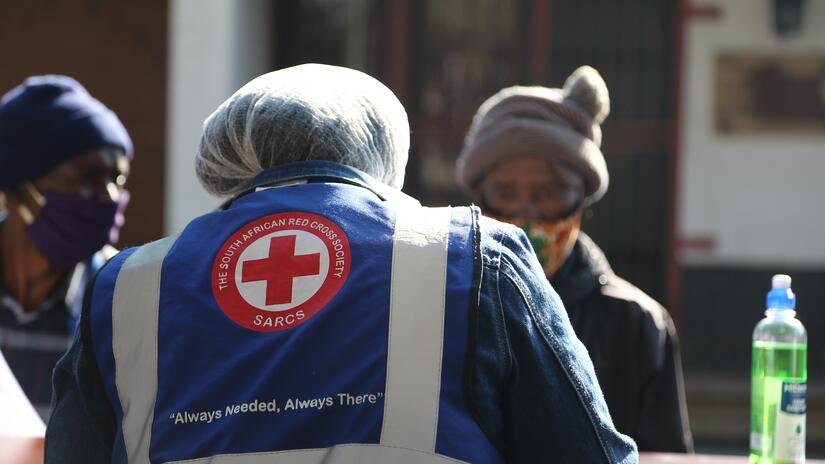Johannesburg/Geneva, 7 August 2020 – A senior Red Cross official has warned that South Africa needed to learn lessons from the country’s fight against HIV/AIDS to help curb the rise in the number of people testing positive for COVID-19, as the number crossed the half a million mark on 1 August 2020.
South Africa is the worst affected nation on the African continent, and currently has the fifth highest number of people testing positive worldwide, after the United States, Brazil, India and Russia.
Dr Michael Charles, the Head of the Southern Africa Country Cluster office of the International Federation of Red Cross and Red Crescent Societies (IFRC), said:
“This is a time to look back and look at the experiences of the past. South Africa was really the epicentre for HIV/AIDS, and we learnt so much from it. Yes it took a while before we could get it up and running in terms of our prevention methods, in terms of stigma, and these are the examples and the lessons learnt that we can bring to the fight against COVID.”
South Africa’s first COVID-19 case was confirmed on 5 March 2020. When the cases doubled every two days in the following three weeks, the country imposed an early lockdown, slowing the transmission. However, following the decision to ease the lockdown in July, the country has seen an exponential rise in cases, causing worldwide concern as it rapidly rose up the ranks of the world’s COVID-19 tally.
As of yesterday (5 August), South Africa had reported almost 530,000 confirmed COVID-19 cases and almost 10,000 deaths. Last week, a record 572 deaths were recorded in the previous 24 hours. These figures have confounded analysts who cannot explain the high rise in numbers but relatively low numbers in death. South Africa has a far lower death toll than other countries that have fewer confirmed cases, for example the UK.
Masks are still mandatory, strict government guidelines have been issued for hygiene practices on public transport like taxis, social distancing is promoted in all public spaces, bars and shebeens (informal drinking spots in townships) remain closed and gatherings like funerals prohibit more than 50 people at a time. Despite these measures, however, many South Africans within and outside the hotspots flout government prescriptions, with community feedback indicating that many believe the virus not to be real or not likely to affect them.
Stigma is an ongoing challenge, with humanitarian actors quoting behaviour similar to that seen during the AIDS pandemic, when people would rather not test, than know they have COVID-19 and be stigmatised or ostracised.
The IFRC’s Dr Charles said:
“It is really our responsibility to stop stigmatising people who have COVID, stop harassing people within the communities because of COVID, and it’s time for us to get together and fight the cause together. It is only then that we can say that we are winning the fight. At the moment unfortunately we are not winning it because our numbers are going up and up but am sure that once we change our attitude, once we bring the lessons learnt from the past, that is when we will start to see the numbers go down.”
Since the outbreak of COVID-19, the South African Red Cross has partnered with the Department of Health to support in screening, testing and contact tracing in key hotspot areas. Ongoing parallel hygiene promotion and behavior change messaging accompany all Red Cross activities to increase health awareness among the general public and targeted communities. Media Communication and Risk Communication and Community Engagement (RCCE) activities have been rolled out to the affected and non-affected communities by Red Cross volunteers. During lockdown, the Red Cross has been providing food to homeless people and other highly affected groups, with a focus on people living in informal settlements.
Press release
3 billion mosquito nets shipped to prevent malaria
3 billion mosquito nets shipped to prevent malaria
| Press release

